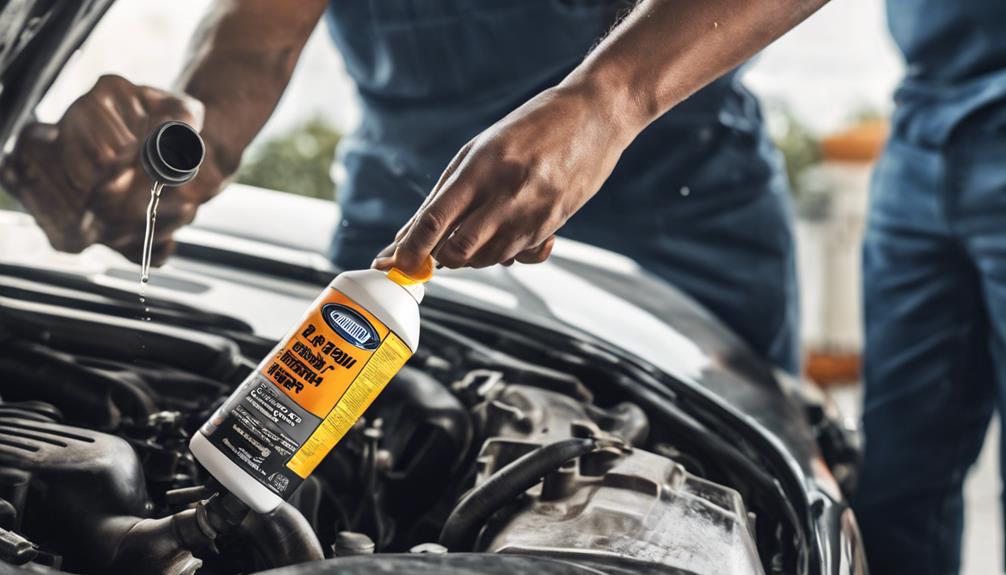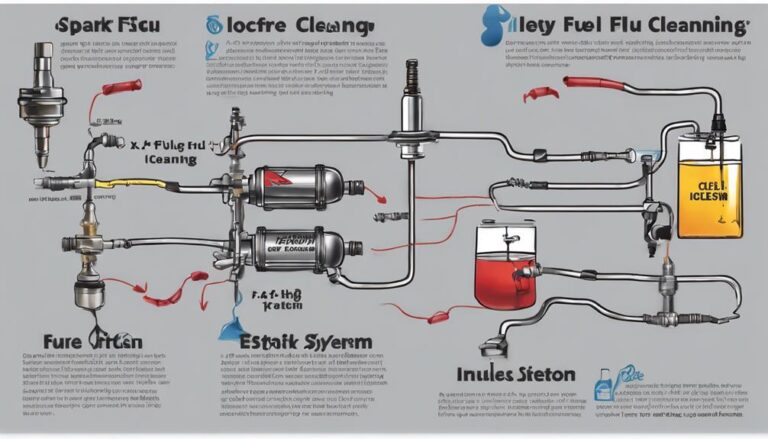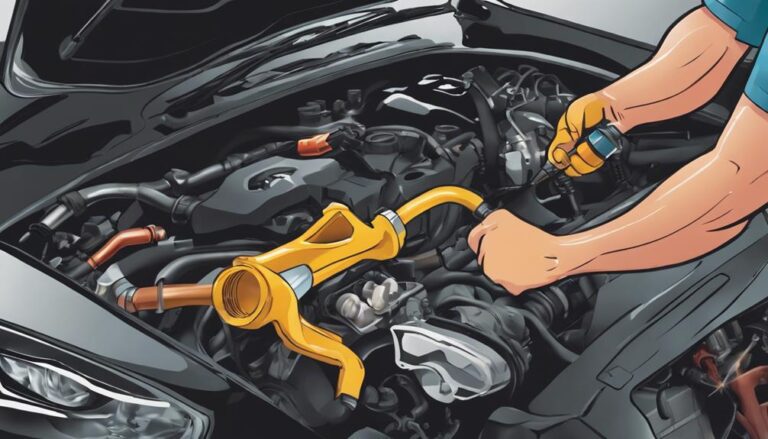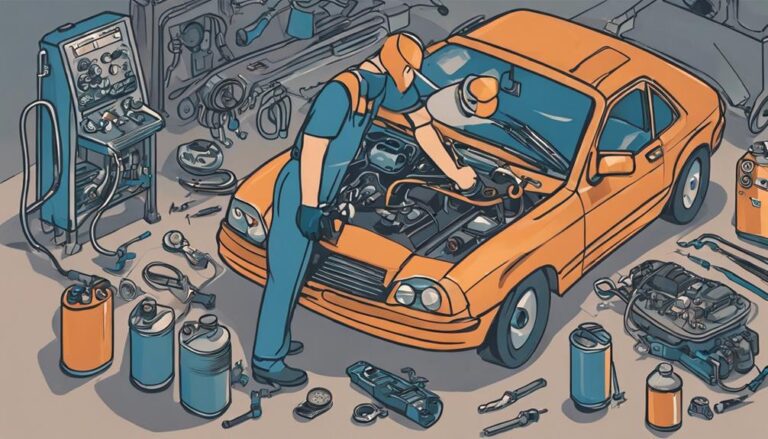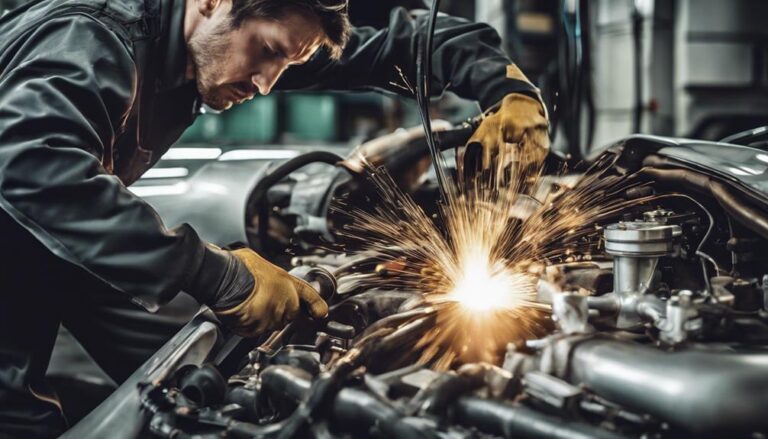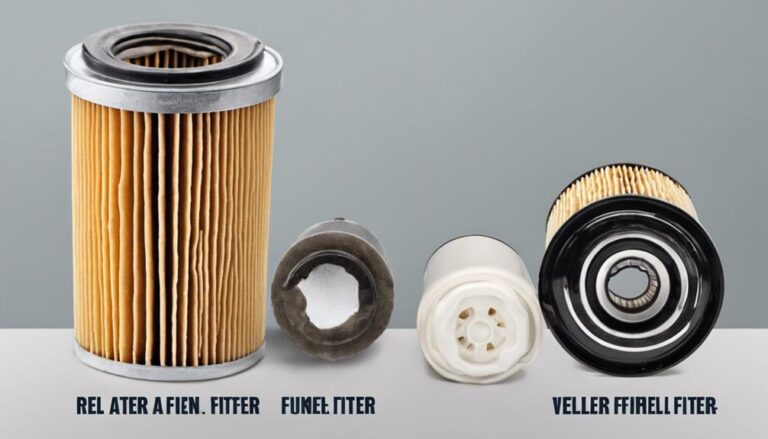Top DIY Fuel System Cleaning Tips for Cars
You know the importance of maintaining your car's fuel system for peak performance. But do you have the top DIY fuel system cleaning tips in your arsenal to ensure it stays in top shape?
From choosing the right fuel injector cleaners to understanding the warning signs of clogged injectors, there are key steps you can take to keep your engine running smoothly.
Stay tuned to discover these insider tips that will help you save money and extend the life of your vehicle.
Key Takeaways
- Regular DIY maintenance enhances engine performance and fuel efficiency.
- Visual inspection and evaluation are crucial for fuel system health.
- Follow structured DIY techniques for fuel injector and tank cleaning.
- Adhere to recommended maintenance intervals to optimize car performance.
Importance of DIY Fuel System Cleaning
Regular maintenance of your vehicle's fuel system through DIY cleaning plays a crucial role in maximizing engine performance and fuel efficiency.
By undertaking DIY fuel system cleaning, you unlock a plethora of benefits that contribute to the overall well-being of your vehicle. These cost-effective solutions not only prevent fuel system deposits but also improve engine health, leading to enhanced reliability and reduced emissions.
Opting for regular DIY cleaning over professional services can save you money while extending the lifespan of vital fuel system components.
Addressing issues such as rough idling and poor acceleration becomes more manageable when following proper cleaning procedures.
The importance of maintaining a clean fuel system through DIY cleaning can't be overstated, as it not only ensures optimal vehicle performance but also aids in preserving the environment by reducing harmful emissions.
Embrace the liberation that DIY fuel system cleaning offers, and experience the efficiency and cost savings it brings to your automotive maintenance routine.
Visual Inspection for Fuel System Maintenance
When inspecting your vehicle's fuel system for maintenance purposes, it's essential to pay close attention to the visual cues provided by the fuel injector spray patterns. The spray patterns from fuel injectors have a significant impact on engine performance and emissions, making it crucial to ensure they're functioning correctly.
Here are some key points to consider during your visual inspection:
- Fuel Injection: Understanding the different types of fuel injection systems and their spray patterns is vital for diagnosing potential issues.
- Atomization Issues: Check for signs of poor atomization, as this can lead to misfire codes and affect overall engine efficiency.
- DIY Cleaning: DIY cleaning methods sometimes miss critical visual inspections, so be thorough when assessing spray patterns.
- Fuel Distribution: Varying spray patterns can disrupt fuel distribution among cylinders, affecting the engine's balance.
- Professional Evaluation: For accurate diagnosis and precise adjustment of fuel injector spray patterns, professional evaluation is highly recommended.
Taking the time to visually inspect your fuel injector spray patterns can help maintain your vehicle's performance and prevent potential issues down the road.
DIY Fuel Injector Cleaning Techniques
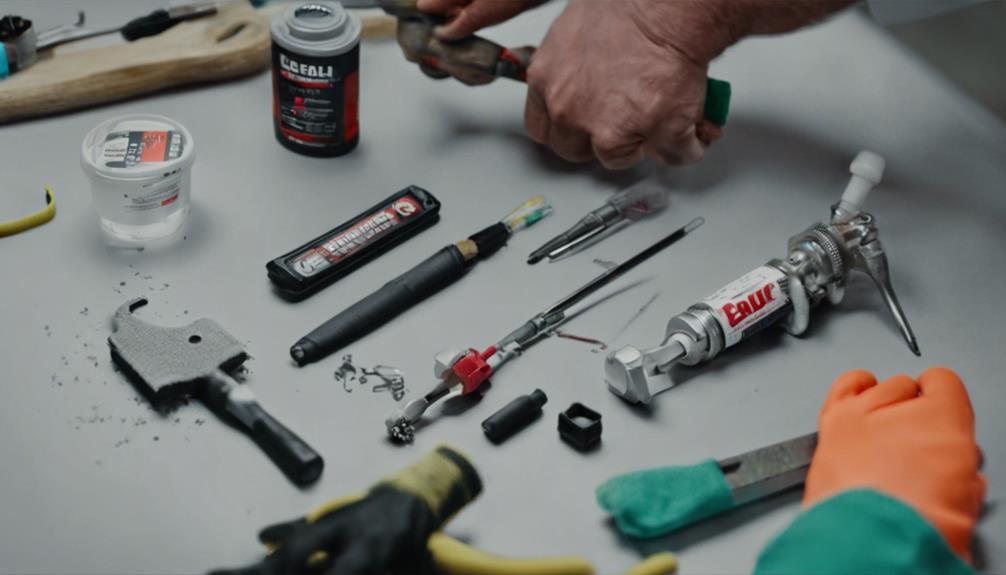
To effectively clean your fuel injectors at home, you must first ensure you have gathered all the necessary tools and safety equipment for the task. Start by collecting a fuel injector cleaner, a wrench, rags, and safety goggles. Safety precautions are crucial; work in a well-ventilated area, and make sure the engine has cooled down before starting.
Follow a structured process: prepare the area, remove the injectors, clean them thoroughly, reassemble them, and test for proper operation. Utilizing a fuel injector cleaner kit can help dissolve any build-ups and restore optimal injector performance. For troubleshooting techniques, consider using additives in your fuel and ensuring regular servicing to prevent future clogs.
Maintaining your fuel injectors is key to the overall health of your vehicle's fuel system. By incorporating these maintenance tips into your routine, you can ensure your fuel injectors operate efficiently, leading to better performance and fuel economy.
Steps for DIY Fuel Tank Cleaning
After successfully cleaning your fuel injectors, the next crucial step in maintaining your car's fuel system is tackling the process of DIY fuel tank cleaning. To ensure optimal performance and longevity of your vehicle, follow these steps for effective fuel tank maintenance:
- Drain the fuel tank: Start by completely draining the fuel tank to remove any contaminants thoroughly.
- Use a compatible cleaning solution: Select a fuel tank cleaning solution that's safe for your vehicle's fuel system to break down deposits effectively.
- Scrub the interior: Use a brush or cloth to scrub the interior of the fuel tank, dislodging any stubborn debris and buildup.
- Rinse thoroughly: Rinse the fuel tank multiple times with clean water to flush out any remaining cleaner and residue.
- Dry completely: Allow the fuel tank to air dry completely before refilling it with fresh fuel to prevent contamination and ensure optimal performance.
Recommended Fuel System Maintenance Intervals
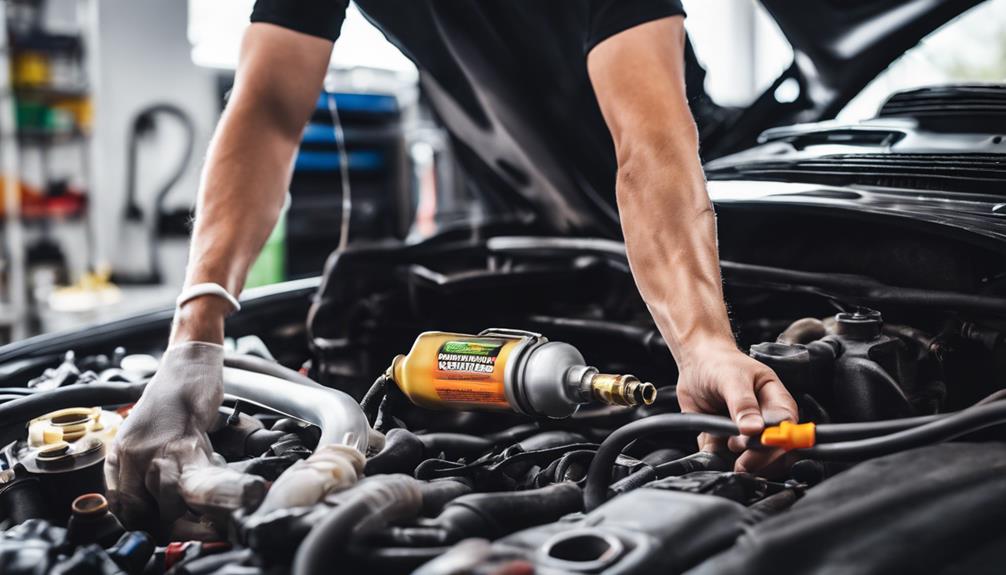
For optimal vehicle performance and longevity, adhere to the manufacturer's recommended fuel system maintenance intervals based on your specific vehicle make and model. Fuel system maintenance intervals typically vary between 30,000 to 100,000 miles, but consulting your vehicle owner's manual is crucial for precise guidance. High mileage vehicles may necessitate more frequent fuel system inspections and cleanings to sustain peak performance levels.
Regularly scheduled fuel system maintenance is essential to prevent costly repairs and ensure your engine operates efficiently. Following the manufacturer's guidelines for fuel system cleaning not only enhances vehicle longevity but also optimizes performance. Fuel system inspection frequency should align with these recommendations to catch any issues early on.
DIY fuel filter replacement is a task that can be easily performed at home, contributing to maintaining a healthy fuel system. By adhering to these maintenance intervals, you can proactively care for your vehicle's fuel system and avoid potential problems down the road.
Frequently Asked Questions
Can I Do a Fuel System Cleaning Myself?
Yes, you can do a fuel system cleaning yourself. Proper DIY maintenance is crucial for car care. Understand the process, prioritize safety, and use quality cleaners. Regular maintenance prevents costly repairs. Keep your engine running smoothly.
How Do You Clean a Car Fuel System?
When cleaning a car fuel system, maintain it by using quality fuel and additives. Follow manufacturer's recommendations for optimal performance. Regularly add recommended cleaners to the tank and run the engine. Save money and empower yourself by DIY cleaning.
What Is the Best Fuel System Cleaning?
For the best fuel system cleaning, opt for fuel additives with PEA that dissolve carbon deposits effectively. Regular use prevents clogs and boosts engine performance. Professional services may cost more but offer comprehensive cleaning compared to DIY methods.
What Is a 3 Step Fuel System Cleaning?
When cleaning your car's fuel system in 3 steps, start by adding a cleaning solution to the tank. Let it circulate to remove deposits and carbon buildup. This process improves fuel efficiency, engine performance, and emissions, ensuring optimal operation.
Conclusion
Inspecting your fuel system regularly and using DIY cleaning techniques can keep your car running smoothly. By using quality fuel injector cleaners and following proper cleaning steps, you can prevent issues like rough idling and decreased mileage.
Remember to adhere to recommended maintenance intervals to ensure optimal engine performance. Keep your fuel system clean and your car will thank you with efficient fuel delivery and reliable operation.

